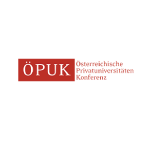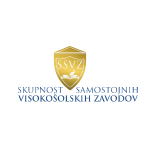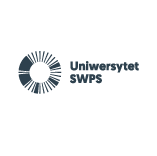Per
Lucky or unlucky – who gets to continue their education,
Christine Böckelmann is the director and Erik Nagel is vice director of the Lucerne School of Business.
Should the recently established free continuing education market for universities be restricted again? This would be contrary to their mission.
The forces of the free market should play a role in continuing education – this is the political will that was implemented at the beginning of 2017 with the Continuing Education Act. Of course, this also applies to the continuing education programs of the universities. They must be offered on a cost-covering basis and must not distort competition. The continuing education market has been developing dynamically for years due to the high demands of the world of work and the associated need for ongoing deepening of skills.
The market share of universities is 2.6 percent, that of universities of applied sciences 2.9 percent. Thus, although universities by no means play a dominant role, their development in the continuing education sector is repeatedly evaluated critically. For example, it is claimed that university continuing education competes with higher vocational education, that the continuing education offered by the universities is subsidized with public funds, or that the universities are making “big business” with continuing education. This implies that the universities have a self-interest in generating and maximizing revenue. Although the criticism can be easily refuted, the negative public discourse nevertheless has an effect:
Practice and science
On the political stage, voices are growing louder calling for increased regulation. The recently established free market for continuing education is to be restricted again for universities. However, this runs counter to their mission. Universities are supposed to make their knowledge available for the benefit of society and the economy, which they can do in particular through their continuously updated continuing education offerings. Universities of applied sciences in particular, whose “DNA” includes a dual focus on practice and science, are predestined to qualified specialists and managers for a rapidly changing world of work that is becoming increasingly networked and complex. The call for regulation is currently being made on the question of what framework should apply to admission to higher education. There is consensus that the “royal road” is to admit people with a tertiary degree and that people without a tertiary degree can participate only in absolutely exceptional cases. There is dissent on the question of the conditions under which persons with a tertiary level B qualification should have access. There is a demand to regulate this by means of a quota, i.e. to limit the number by means of a rigid rule. It is to be specified that “the majority” of participants must have a university degree. – Vocational training leads to a high degree of employability. Graduates of higher vocational education and training often perform comparable tasks in the world of work in their specialist areas as university graduates. Accordingly, they often have the same further training needs or would like to expand and deepen their expertise in the same fields. It is essential that these professionals are enabled to engage in lifelong learning in a variety of ways and thus also have access to scientifically based university continuing education. However, this must be linked to clear conditions in the area of competencies: In order to ensure that the requirements can be met, several years of qualified professional practice in a professional field relevant to the respective continuing education and sufficient scientific competencies are required. The universities must ensure this.
Maintaining equal opportunities
With a quota system, the traverse from higher vocational education to higher education would no longer be about competencies. Rather, it would depend on how many other people wanted to pursue higher education at the same time. Some would then simply be lucky, others unlucky. This violates equal opportunities, damages the proven permeability of the Swiss education system, leads to educational biographies that end in dead ends, and impairs the urgent ongoing further qualification of our skilled workers. The existing range of continuing education would collapse in individual fields.
The pressure to obtain a university education would increase further since a later traverse from vocational education and training can no longer be guaranteed. In addition, the Swiss higher education system as a whole would be weakened, since international education providers, which are increasingly entering the market, would not have to comply with the quota regulation.
Contra
Further Education is a Non-Public Affair
Klaus Hekking is President of the European Union of Higher Education
In the article above, published in the Neue Zürcher Zeitung on June 23, 2020, the authors plead for the opening of the commercial advanced training market for state universities in Switzerland. As this is not only a discussion in Switzerland but also in the whole European Higher Education Area (EHEA), we feel it necessary to make clear our view of this matter.
In terms of European regulatory policy, we think it is correct to restrict the activities of state universities mostly financed from tax funds on the free further education market. Their entry into this market with the means of tax-financed faculty and infrastructure in the EU can be a non-compatible aid according to Art.107 of the TFEU, because it distorts competition in the free education market and jeopardizes proven and functioning business models of private higher education institutions which donˋt receive public subsidies.
Further education in Europe traditionally is a non-public affair and a terrain of private higher educational institutions. They develop tailor-made and practice-related advanced training programs of high quality for the industry with their own money, with full entrepreneurial risk, and in fierce competition, not to forget: Many of them pay for this business also corporate taxes. So this proven model of further education creates a win-win situation for students, customers, private higher education institutions, and the State. This has worked well in the past and present and it will work in the future. There is no need and no value added by public financed further education
There is no gap in the supply of further education that public universities would necessarily have to fill. This becomes clear alone from the fact that the further education offers of the state universities have only a very low demand with a market share of under 3%. State universities in Europe have their core mandate in non-commercial academic teaching and research and they should focus all of their energy on this mandate to assure the first quality of their study courses and their research activities.












